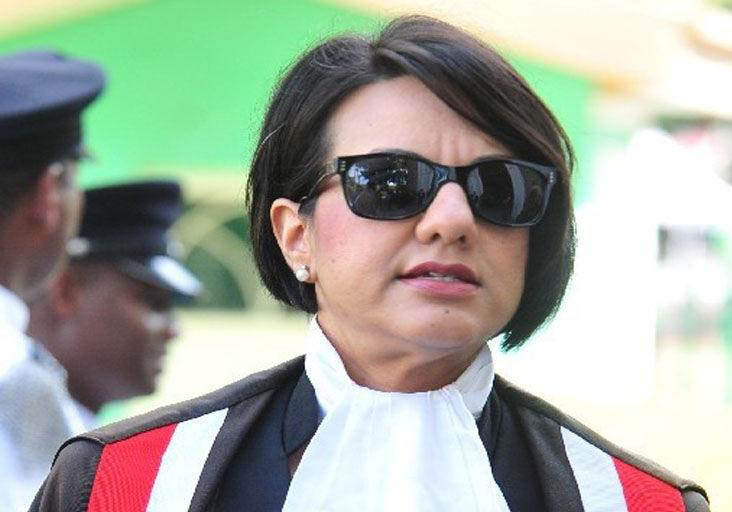(Trinidad Guardian) For the first time since Independence, this country is temporarily without a Commissioner of Police.
Delivering a 58-page judgement yesterday afternoon, High Court Judge Nadia Kangaloo upheld an interpretation lawsuit from social activist Ravi Balgobin Maharaj, in which he (Maharaj) claimed that the Police Service Commission needed the approval of the House of Representatives to make acting and substantive appointments for the Commissioner of Police and Deputy Commissioners of Police (DCPs).
Kangaloo’s decision in the case effectively invalidated the acting appointment given to former police commissioner Gary Griffith after his three-year stint in the post ended in mid-August.
It also invalidated the acting appointment given to DCP McDonald Jacob, after Griffith went on leave and was temporarily suspended by the PSC due to its probe into the issuing of firearm user’s licenses (FULs) by the TTPS.
Even if Maharaj’s lawsuit was dismissed, Jacob would not have been able to continue the post while Griffith remained on leave pending the completion of the probe, as per his (Griffith) settlement with the commission over the suspension, as Jacob’s acting appointment was due to end at midnight yesterday.
The appointment of a new acting commissioner under the process affirmed by Justice Kangaloo, can only begin after the commission is reconstituted.
The commission is currently memberless, as although retired Justice of Appeal Judith Jones and consultant Maxine Attong were nominated earlier this week, they still require Parliamentary approval to be appointed.
While under the Constitution, the commission consists of a chairman and four members, decisions can be taken with a quorum of three.
The commission is also currently barred from completing the process of selecting a list of candidates for the substantive post, to be approved by Parliament, based on an injunction obtained by acting Senior Supt Anand Ramesar.
Ramesar is challenging the decision of the former commission members to not select him to move on to the interview stage of their recruitment process.
That injunction remains in place until Ramesar’s lawsuit comes up for hearing before Justice Joan Charles in two weeks’ time.
Presenting submissions on Maharaj’s behalf earlier this week, Anand Ramlogan SC pointed to correspondence from the Commission to the Office of the President from mid-August, in which it submitted Griffith and a serving police officer’s names when recommending the acting appointment pending its completion of the substantive recruitment process.
“Why would it submit more than one name?” Ramlogan asked.
Ramlogan suggested that Parliamentary approval was vital for both substantive and acting appointments to the post because of the wide range of power which the officeholder wields.
“When you are acting, you are vested with all the powers you hold with the substantive office…That is why it is important to get it right,” Ramlogan said.
He rejected claims that approval for short acting appointments would cause a strain on Parliament.
“You cannot say it would be a waste of Parliament’s time…No one can say it is an impossibility, just that it is impractical,” Ramlogan said.
In his submissions, Douglas Mendes SC, who led the legal team for the Office of the Attorney General, supported Maharaj’s stance on the approval requirement.
Mendes suggested that the commission could have left the post vacant while it was completing the process.
Senior Counsel Russell Martineau, who led the commission’s legal team, submitted that while the Constitution prescribed the process of acting appointments for other officeholders, it was silent on acting appointments by the PSC, who utilised power under a series of legal orders.
“Whenever it (the Constitution) tells you what the procedure is, it expressly says so,” Martineau said, as he described the suggested approval requirement as absurd.
Martineau rejected claims that the post could have been left vacant for a short period, as he claimed it always had to be filled due to the important powers of the office, including transferring and disciplining police officers.
Martineau also denied Ramlogan’s claims that the commission knew it needed approval, as he claimed the second name submitted was done because the PSC was being cautious.
Attorney Larry Lalla, who represented Griffith, questioned the timing of the lawsuit, as he noted former acting police commissioners James Philbert and Stephen Williams were given several acting appointments by the PSC over the past decade without any legal challenges to its authority to do so. He called upon Justice Kangaloo to be cautious when deciding the case, as he noted it may have unforeseen effects, including invalidating the work of other former acting officeholders who were not given Parliamentary approval.
In her judgement, Justice Kangaloo agreed with Maharaj’s claims that a literal and purposive interpretation of the Constitution pointed to Parliamentary approval being required. She noted that the Office of the Attorney General had supported the position articulated by Maharaj’s legal team in the case.
She noted that the fact that there were improper appointments in the past did not have any bearing on her interpretation of the case. She also noted that the work of the former commissioners, whose appointments were invalid based on the lack of approval, was protected by the de facto officer principle.
As part of her decision, Kangaloo voided a legal order from 2009 and partially voided a legal order from earlier this year, which both purportedly gave the PSC the authority to issue acting appointments without approval.
Although Justice Kangaloo gave the parties an opportunity to file submissions on legal costs for the case, she suggested all the parties bear their own costs due to the fundamental importance of the case.






